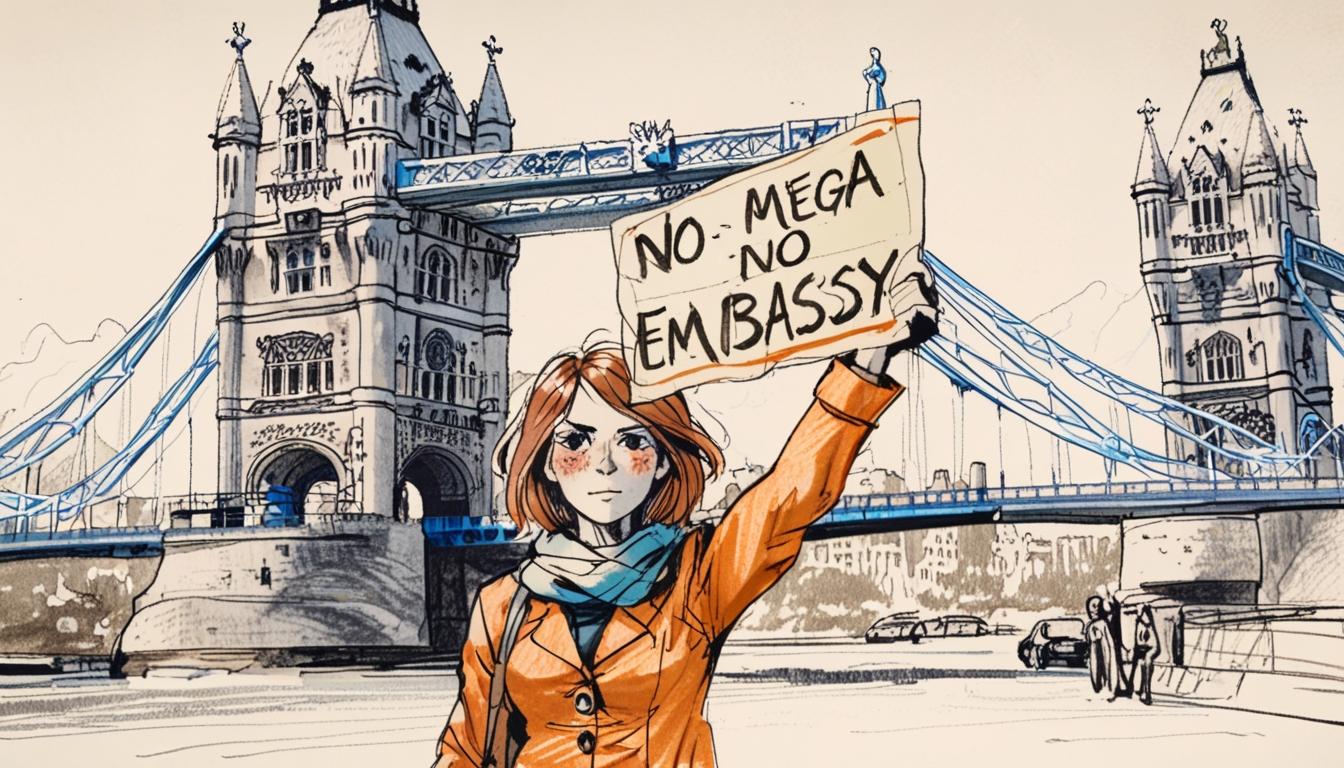A protest held in February against China's proposed 'mega-embassy' in London has escalated into allegations of intimidation and retaliation aimed at some participants, notably Carmen Lau, a 30-year-old former politician from Hong Kong. The rally, which saw approximately 3,000 demonstrators gather near Tower Bridge, aimed to voice concerns over the construction of a 5.5-acre complex that many activists contend serves as a symbol of Beijing's growing influence in the UK.
Ms Lau, who fled Hong Kong five years ago, spoke out at the rally, expressing apprehension that the establishment of such a substantial embassy sends a troubling message: that Britain is receptive to authoritarian regimes. She articulated fears that the embassy would function as a centre for what she described as 'transnational repression' by the Chinese government, an assertion that underscores ongoing concerns about China's domestic and international surveillance practices.
Shortly after the protest, Ms Lau's family in Hong Kong experienced a significant backlash. Within 48 hours, her elderly aunt and uncle were reportedly detained by national security police during dawn raids at their residences. During their six-hour interrogation, they were questioned about Ms Lau's connections to Hong Kong and any financial relationships she maintained. Following this incident, additional relatives of Ms Lau were also targeted by the police, leading her to suspect that the detentions were intended to intimidate her and undermine her activism in the UK.
In a disturbing development, Ms Lau revealed that her neighbours in Berkshire received leaflets purportedly from Hong Kong police, offering one million Hong Kong dollars—approximately £100,000—for information about her or for anyone who could lure her into the Chinese embassy in Marylebone, central London. These actions have raised alarms regarding the lengths to which the Chinese authorities are willing to go to suppress dissent, even across international borders.
Ms Lau has described her experiences of surveillance and harassment since leaving Hong Kong, alleging that undercover police officers have monitored her activities and that she has been followed consistently. She stated that she feels her family's safety is compromised by her activism, noting that the Metropolitan Police have advised her to avoid public gatherings for fear of potential attacks on her or danger to her relatives.
Concerns regarding the embassy extend to its architectural features, including underground chambers whose intended functions remain undisclosed, allegedly for 'security reasons'. Ms Lau speculated that these areas could serve purposes ranging from interrogations to detentions.
As the situation unfolds, Ms Lau's assertions reflect broader apprehensions about the implications of China's increasing global presence and its impact on human rights and civil liberties for expatriates and activists abroad.
Source: Noah Wire Services
